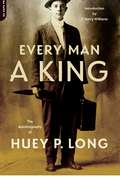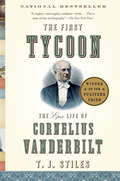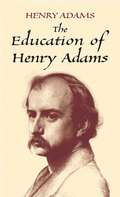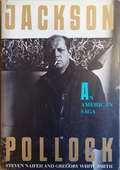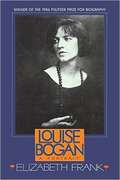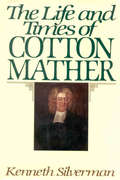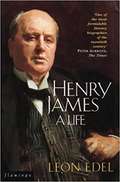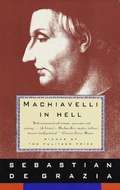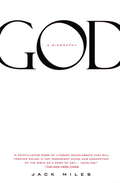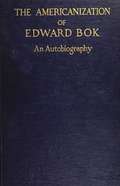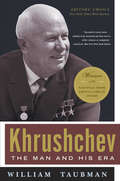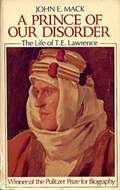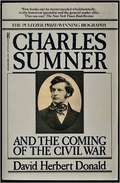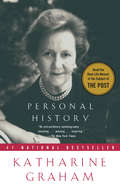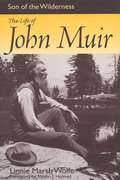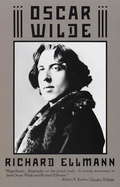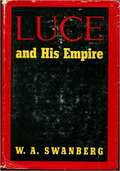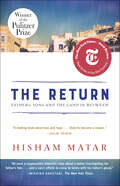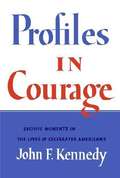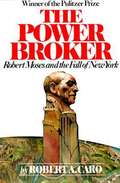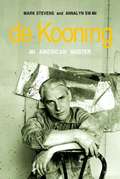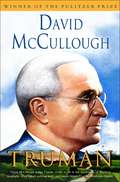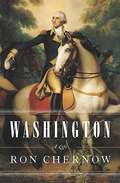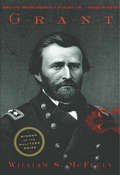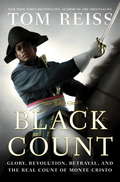Special Collections
Pulitzer Prize Award Winners
Description: Bookshare is pleased to offer the following titles, winners of the Pulitzer Prize Award. Note: Some drama winners are available and are listed under Fiction awards. #award
- Table View
- List View
Every Man A King
by Huey P. LongHuey Long (1893-1935) was one of the most extraordinary American politicians, simultaneously cursed as a dictator and applauded as a benefactor of the masses. A product of the poor north Louisiana hills, he was elected governor of Louisiana in 1928, and proceeded to subjugate the powerful state political hierarchy after narrowly defeating an impeachment attempt. The only Southern popular leader who truly delivered on his promises, he increased the miles of paved roads and number of bridges in Louisiana tenfold and established free night schools and state hospitals, meeting the huge costs by taxing corporations and issuing bonds. Soon Long had become the absolute ruler of the state, in the process lifting Louisiana from near feudalism into the modern world almost overnight, and inspiring poor whites of the South to a vision of a better life. As Louisiana Senator and one of Roosevelt's most vociferous critics, "The Kingfish," as he called himself, gained a nationwide following, forcing Roosevelt to turn his New Deal significantly to the left. But before he could progress farther, he was assassinated in Baton Rouge in 1935. Long's ultimate ambition, of course, was the presidency, and it was doubtless with this goal in mind that he wrote this spirited and fascinating account of his life, an autobiography every bit as daring and controversial as was The Kingfish himself.
The First Tycoon
by T. J. StilesA gripping, groundbreaking biography of the combative man whose genius and force of will created modern capitalism.
Founder of a dynasty, builder of the original Grand Central, creator of an impossibly vast fortune, Cornelius "Commodore" Vanderbilt is an American icon. Humbly born on Staten Island during George Washington's presidency, he rose from boatman to builder of the nation's largest fleet of steamships to lord of a railroad empire. Lincoln consulted him on steamship strategy during the Civil War; Jay Gould was first his uneasy ally and then sworn enemy; and Victoria Woodhull, the first woman to run for president of the United States, was his spiritual counselor. We see Vanderbilt help to launch the transportation revolution, propel the Gold Rush, reshape Manhattan, and invent the modern corporation--in fact, as T. J. Stiles elegantly argues, Vanderbilt did more than perhaps any other individual to create the economic world we live in today.
In The First Tycoon, Stiles offers the first complete, authoritative biography of this titan, and the first comprehensive account of the Commodore's personal life. It is a sweeping, fast-moving epic, and a complex portrait of the great man. Vanderbilt, Stiles shows, embraced the philosophy of the Jacksonian Democrats and withstood attacks by his conservative enemies for being too competitive. He was a visionary who pioneered business models. He was an unschooled fistfighter who came to command the respect of New York's social elite. And he was a father who struggled with a gambling-addicted son, a husband who was loving yet abusive, and, finally, an old man who was obsessed with contacting the dead.
The First Tycoon is the exhilarating story of a man and a nation maturing together: the powerful account of a man whose life was as epic and complex as American history itself.
Winner of the National Book Award
Winner of the Pulitzer Prize
The Education of Henry Adams
by Henry AdamsA scion of the famous Adams family of American statesmen, historian Henry Adams crafted this well-known autobiographical work, which reflects his constant search for order in a world of chaos. He cast himself as a modern everyman, seeking coherence in a fragmented universe and concluding that his education was inadequate for the demands of modern society.
Pulitzer Prize Winner
Jackson Pollock
by Gregory W. Smith and Steven W. NaifehBased on family letters and documents, lengthy interviews with his widow, Lee Krasner, as well as his psychologists and psychoanalysts, this book explodes the myths surrounding his death in 1956.
Pulitzer Prize Winner
Louise Bogan
by Elizabeth FrankA full-scale biography of the distinguished lyric poet, translator, and critic details the highs and lows of her elegant and sorrowful life and the steady growth and influence of her work.
Winner of the 1986 Pulitzer Prize for Biography.
The Life and Times of Cotton Mather
by Kenneth SilvermanA biography of the most celebrated of all New England Puritans, at once a sophisticated work which succeeds admirably in presenting a complete portrait of a complex man and a groundbreaking study that accurately portrays Mather and his contemporaries as the first true American rather than European expatriates.
Pulitzer Prize Winner
Henry James
by Leon EdelThis is the one-volume edition of a famous biography of Henry James. Born in America, Henry James was educated both there and in Europe before settling in London, where he was to spend most of his life, in 1876. His novels represent the culmination of the 19th-century realist tradition of Austen, George Eliot, Flauberty and Balzac, and a decisive step towards the experimental modernism of Woolf and T.S. Eliot. His works often focus upon an innocent American in Europe, and assess the qualities and dangers of both American and European culture at the time, as well as showing their vast differences. "A Portrait of a Lady", "The Ambassadors" and "The Golden Bowl" all explore this subject, whilst Honore de Balzac's "Eugenie Grandet" was so admired by James that he was inspired to write "Washington Square", his own version of the tale. James's works explore sexual roles, feminism and class conflict.
Winner of the National Book Award
Pulitzer Prize Winner
Machiavelli in Hell
by Sebastian De GraziaIn this intellectual biography, de Grazia presents a new vision of Niccolo Machiavelli that evokes the great Florentine thinker's presence. After giving an engrossing account of Machiavelli's childhood and period of personal crisis that followed his imprisonment and torture, the book turns to an examination of The Prince.
Pulitzer Prize Winner
God
by Jack MilesWhat sort of "person" is God? Is it possible to approach him not as an object of religious reverence, but as the protagonist of the world's greatest book--as a character who possesses all the depths, contradictions, and abiguities of a Hamlet? In this "brilliant, audacious book" (Chicago Tribune), a former Jesuit marshalls a vast array of learning and knowledge of the Hebrew Bible to illuminate God--and man--with a sense of discovery and wonder.
Pulitzer Prize Winner
The Americanization of Edward Bok
by Edward BokEdward William Bok (born Eduard Willem Gerard Cesar Hidde Bok) (October 9, 1863 – January 9, 1930) was a Dutch-born American editor and Pulitzer Prize-winning author. He was editor of the Ladies' Home Journal for 30 years (1889-1919).
Pulitzer Prize Winner
Khrushchev
by William TaubmanThe definitive biography of the mercurial Soviet leader who succeeded and denounced Stalin. Nikita Khrushchev was one of the most complex and important political figures of the twentieth century. Ruler of the Soviet Union during the first decade after Stalin's death, Khrushchev left a contradictory stamp on his country and on the world. His life and career mirror the Soviet experience: revolution, civil war, famine, collectivization, industrialization, terror, world war, cold war, Stalinism, post-Stalinism. Complicit in terrible Stalinist crimes, Khrushchev nevertheless retained his humanity: his daring attempt to reform communism prepared the ground for its eventual collapse; and his awkward efforts to ease the cold war triggered its most dangerous crises.
This is the first comprehensive biography of Khrushchev and the first of any Soviet leader to reflect the full range of sources that have become available since the USSR collapsed. Combining a page-turning historical narrative with penetrating political and psychological analysis, this book brims with the life and excitement of a man whose story personified his era.
Pulitzer Prize Winner
A Prince of Our Disorder
by John E. MackWhen this Pulitzer Prize-winning biography first appeared in 1976, it rescued T. E. Lawrence from the mythologizing that had seemed to be his fate. In it, John Mack humanely and objectively explores the relationship between Lawrence's inner life and his historically significant actions. Extensive interviews, far-flung correspondence, access to War Office dispatches and unpublished letters provide the basis for Mack's sensitive investigation of the psychiatric dimensions of Lawrence's personality. In addition, Mack examines the pertinent history, politics, and sociology of the time in order to weigh the real forces with which Lawrence contended and which impinged upon him.
Charles Sumner and the Coming of the Civil War
by David Herbert DonaldIn a period when senators exercised more influence than presidents, Senator Charles Sumner was one of the most powerful forces in the American government. His uncompromising moral standards made him a lightning rod in an era fraught with conflict.
Pulitzer Prize Winner
Personal History
by Katharine GrahamWinner of the 1998 Pulitzer Prize for BiographyAn extraordinarily frank, honest, and generous book by one of America's most famous and admired women, Personal History is, as its title suggests, a book composed of both personal memoir and history.It is the story of Graham's parents: the multimillionaire father who left private business and government service to buy and restore the down-and-out Washington Post, and the formidable, self-absorbed mother who was more interested in her political and charity work, and her passionate friendships with men like Thomas Mann and Adlai Stevenson, than in her children.It is the story of how The Washington Post struggled to succeed -- a fascinating and instructive business history as told from the inside (the paper has been run by Graham herself, her father, her husband, and now her son).It is the story of Phil Graham -- Kay's brilliant, charismatic husband (he clerked for two Supreme Court justices) -- whose plunge into manic-depression, betrayal, and eventual suicide is movingly and charitably recounted. Best of all, it is the story of Kay Graham herself. She was brought up in a family of great wealth, yet she learned and understood nothing about money. She is half-Jewish, yet -- incredibly -- remained unaware of it for many years.She describes herself as having been naive and awkward, yet intelligent and energetic. She married a man she worshipped, and he fascinated and educated her, and then, in his illness, turned from her and abused her. This destruction of her confidence and happiness is a drama in itself, followed by the even more intense drama of her new life as the head of a great newspaper and a great company, a famous (and even feared) woman in her own right. Hers is a life that came into its own with a vengeance -- a success story on every level.Graham's book is populated with a cast of fascinating characters, from fifty years of presidents (and their wives), to Steichen, Brancusi, Felix Frankfurter, Warren Buffett (her great advisor and protector), Robert McNamara, George Schultz (her regular tennis partner), and, of course, the great names from the Post: Woodward, Bernstein, and Graham's editorpartner, Ben Bradlee. She writes of them, and of the most dramatic moments of her stewardship of the Post (including the Pentagon Papers, Watergate, and the pressmen's strike), with acuity, humor, and good judgment. Her book is about learning by doing, about growing and growing up, about Washington, and about a woman liberated by both circumstance and her own great strengths.From the Trade Paperback edition.
Son of the Wilderness
by Linnie M. WolfeWorking closely with Muir’s family and with his papers, Wolfe was able to create a full portrait of her subject, not only as America’s firebrand conservationist and founder of the national park system, but also as husband, father, and friend. All readers who have admired Muir’s ruggedly individualistic lifestyle, and those who wish a greater appreciation for the history of environmental preservation in America, will be enthralled and enlightened by this splendid biography.
The story follows Muir from his ancestral home in Scotland, through his early years in the harsh Wisconsin wilderness, to his history-making pilgrimage to California.
This book, originally published in 1945 and based in large part on Wolfe’s personal interviews with people who knew and worked with Muir, is one that could never be written again. It is, and will remain, the standard Muir biography.
Pulitzer Prize Winner
Oscar Wilde
by Richard EllmannThe biography sensitive to the tragic pattern of the story of a great subject: Oscar Wilde - psychologically and sexually complicated, enormously quotable, central to a alluring cultural world and someone whose life assumed an unbearably dramatic shape.
Luce and His Empire
by W. A. SwanbergHenry Luce started Time magazine in the 1940's and went on to create a media empire. He married Clare Booth Luce who became ambassador to Italy.
Pulitzer Prize Winner
The Return (Pulitzer Prize Winner)
by Hisham MatarWINNER OF THE PULITZER PRIZE • The acclaimed memoir about fathers and sons, a legacy of loss, and, ultimately, healing—one of The New York Times Book Review&’s ten best books of the year, winner of the PEN/Jean Stein Book Award, and a finalist for the National Book Critics Circle Award and the Los Angeles Times Book PrizeOne of the New York Times&’s 100 Best Books of the 21st Century When Hisham Matar was a nineteen-year-old university student in England, his father went missing under mysterious circumstances. Hisham would never see him again, but he never gave up hope that his father might still be alive. Twenty-two years later, he returned to his native Libya in search of the truth behind his father&’s disappearance. The Return is the story of what he found there. The Pulitzer Prize citation hailed The Return as &“a first-person elegy for home and father.&” Transforming his personal quest for answers into a brilliantly told universal tale of hope and resilience, Matar has given us an unforgettable work with a powerful human question at its core: How does one go on living in the face of unthinkable loss?NAMED ONE OF THE BEST BOOKS OF THE YEAR BY Michiko Kakutani, The New York Times • The Washington Post • The Guardian • Financial Times&“A tale of mighty love, loyalty and courage. It simply must be read.&”—The Spectator (U.K.) &“Wise and agonizing and thrilling to read.&”—Zadie Smith &“[An] eloquent memoir . . . at once a suspenseful detective story about a writer investigating his father&’s fate . . . and a son&’s efforts to come to terms with his father&’s ghost, who has haunted more than half his life by his absence.&”—Michiko Kakutani, The New York Times &“This outstanding book . . . roves back and forth in time with a freedom that conceals the intricate precision of its art.&”—The Wall Street Journal &“Truly remarkable . . . a book with a profound faith in the consolations of storytelling . . . a testament to [Matar&’s] father, his family and his country.&”—The Daily Telegraph (U.K.) &“The Return is a riveting book about love and hope, but it is also a moving meditation on grief and loss. . . . Likely to become a classic.&”—Colm Tóibín &“Matar&’s evocative writing and his early traumas call to mind Vladimir Nabokov.&”—The Washington Post &“Utterly riveting.&”—The Boston Globe &“A moving, unflinching memoir of a family torn apart.&”—Kazuo Ishiguro, The Guardian &“Beautiful . . . The Return, for all the questions it cannot answer, leaves a deep emotional imprint.&”—Newsday &“A masterful memoir, a searing meditation on loss, exile, grief, guilt, belonging, and above all, family. It is, as well, a study of the shaping—and breaking—of the bonds between fathers and sons. . . . This is writing of the highest quality.&”—The Sunday Times (U.K.)
Profiles in Courage
by John Fitzgerald Kennedy"This is a book about that most admirable of human virtues--courage... and these are the stories of the pressures experienced by eight United States Senators and the grace with which they endured them--the risks to their careers, the unpopularity of their courses, the defamation of their characters, and sometimes, but sadly only sometimes, the vindication of their reputations and their principles."
During 1954-1955, John F. Kennedy, then a U.S. Senator, chose eight of his historical colleagues to profile for their acts of astounding integrity in the face of overwhelming opposition. These heroes include John Quincy Adams, Daniel Webster, Thomas Hart Benton, and Robert A. Taft.
Awarded the Pulitzer Prize in 1957, Profiles in Courage resounds with timeless lessons on the most cherished of virtues and is a powerful reminder of the strength of the human spirit.
The Power Broker
by Robert A. CaroThe Power Broker tells the hidden story behind the shaping (and mis-shaping) of twentieth-century New York (city and state) and makes public what few have known: that Robert Moses was, for almost half a century, the single most powerful man of our time in New York, the shaper not only of the city's politics but of its physical structure and the problems of urban decline that plague us today. In revealing how Moses did it--how he developed his public authorities into a political machine that was virtually a fourth branch of government, one that could bring to their knees Governors and Mayors (from La Guardia to Lindsay) by mobilizing banks, contractors, labor unions, insurance firms, even the press and the Church, into an irresistible economic force--Robert Caro reveals how power works in all the cities of the United States. Moses built an empire and lived like an emperor. He personally conceived and completed public works costing 27 billion dollars--the greatest builder America (and probably the world) has ever known. Without ever having been elected to office, he dominated the men who were--even his most bitter enemy, Franklin D. Roosevelt, could not control him--until he finally encountered, in Nelson Rockefeller, the only man whose power (and ruthlessness in wielding it) equalled his own.
Pulitzer Prize Winner
De Kooning
by Mark Stevens and Annalyn SwanWillem de Kooning is one of the most important artists of the twentieth century, a true “painter’s painter” whose protean work continues to inspire many artists. In the thirties and forties, along with Arshile Gorky and Jackson Pollock, he became a key figure in the revolutionary American movement of abstract expressionism. Of all the painters in that group, he worked the longest and was the most prolific, creating powerful, startling images well into the 1980s. The first major biography of de Kooning captures both the life and work of this complex, romantic figure in American culture. Ten years in the making, and based on previously unseen letters and documents as well as on hundreds of interviews, this is a fresh, richly detailed, and masterful portrait. The young de Kooning overcame an unstable, impoverished, and often violent early family life to enter the Academie in Rotterdam, where he learned both classic art and guild techniques. Arriving in New York as a stowaway from Holland in 1926, he underwent a long struggle to become a painter and an American, developing a passionate friendship with his fellow immigrant Arshile Gorky, who was both a mentor and an inspiration. During the Depression, de Kooning emerged as a central figure in the bohemian world of downtown New York, surviving by doing commercial work and painting murals for the WPA. His first show at the Egan Gallery in 1948 was a revelation. Soon, the critics Harold Rosenberg and Thomas Hess were championing his work, and de Kooning took his place as the charismatic leader of the New York school—just as American art began to dominate the international scene.
Dashingly handsome and treated like a movie star on the streets of downtown New York, de Kooning had a tumultuous marriage to Elaine de Kooning, herself a fascinating character of the period. At the height of his fame, he spent his days painting powerful abstractions and intense, disturbing pictures of the female figure—and his nights living on the edge, drinking, womanizing, and talking at the Cedar bar with such friends as Franz Kline and Frank O’Hara. By the 1960s, exhausted by the feverish art world, he retreated to the Springs on Long Island, where he painted an extraordinary series of lush pastorals. In the 1980s, as he slowly declined into what was almost certainly Alzheimer’s, he created a vast body of haunting and ethereal late work.
This is an authoritative and brilliant exploration of the art, life, and world of an American master.
Pulitzer Prize Winner
Truman
by David McCulloughThe Pulitzer Prize–winning biography of Harry S. Truman, whose presidency included momentous events from the atomic bombing of Japan to the outbreak of the Cold War and the Korean War, told by America&’s beloved and distinguished historian.The life of Harry S. Truman is one of the greatest of American stories, filled with vivid characters—Roosevelt, Churchill, Stalin, Eleanor Roosevelt, Bess Wallace Truman, George Marshall, Joe McCarthy, and Dean Acheson—and dramatic events. In this riveting biography, acclaimed historian David McCullough not only captures the man—a more complex, informed, and determined man than ever before imagined—but also the turbulent times in which he rose, boldly, to meet unprecedented challenges. The last president to serve as a living link between the nineteenth and the twentieth centuries, Truman’s story spans the raw world of the Missouri frontier, World War I, the powerful Pendergast machine of Kansas City, the legendary Whistle-Stop Campaign of 1948, and the decisions to drop the atomic bomb, confront Stalin at Potsdam, send troops to Korea, and fire General MacArthur. Drawing on newly discovered archival material and extensive interviews with Truman’s own family, friends, and Washington colleagues, McCullough tells the deeply moving story of the seemingly ordinary “man from Missouri” who was perhaps the most courageous president in our history.
Washington
by Ron ChernowIn Washington: A Life celebrated biographer Ron Chernow provides a richly nuanced portrait of the father of our nation. With a breadth and depth matched by no other one-volume life of Washington, this crisply paced narrative carries the reader through his troubled boyhood, his precocious feats in the French and Indian War, his creation of Mount Vernon, his heroic exploits with the Continental Army, his presiding over the Constitutional Convention, and his magnificent performance as America's first president.
Despite the reverence his name inspires, Washington remains a lifeless waxwork for many Americans, worthy but dull. A laconic man of granite self-control, he often arouses more respect than affection. In this groundbreaking work, based on massive research, Chernow dashes forever the stereotype of a stolid, unemotional man. A strapping six feet, Washington was a celebrated horseman, elegant dancer, and tireless hunter, with a fiercely guarded emotional life. Chernow brings to vivid life a dashing, passionate man of fiery opinions and many moods. Probing his private life, he explores his fraught relationship with his crusty mother, his youthful infatuation with the married Sally Fairfax, and his often conflicted feelings toward his adopted children and grandchildren. He also provides a lavishly detailed portrait of his marriage to Martha and his complex behavior as a slave master.
At the same time, Washington is an astute and surprising portrait of a canny political genius who knew how to inspire people. Not only did Washington gather around himself the foremost figures of the age, including James Madison, Alexander Hamilton, John Adams, and Thomas Jefferson, but he also brilliantly orchestrated their actions to shape the new federal government, define the separation of powers, and establish the office of the presidency.
In this unique biography, Ron Chernow takes us on a page-turning journey through all the formative events of America's founding. With a dramatic sweep worthy of its giant subject, Washington is a magisterial work from one of our most elegant storytellers.
Pulitzer Prize Winner
Grant
by William S. McfeelyIn this stunning biography, William McFeely brings us a thoroughly compelling story of a tangled life.
Having once said "a military life had no charms to me," U.S. Grant entered West Point to get through the course, secure a detail for a few years as assistant professor of mathematics at the Academy, and afterwards obtain a permanent position as professor at some respectable college. But the course his life took was quite different. Little did he ever dream that he would serve with distinction in the Mexican War, lead the Union to victory in the Civil War, struggle through eight years as President of the United States, and wage bitter personal battles against alcoholism, insolvency, and cancer.
Pulitzer Prize Winner
The Black Count
by Tom ReissHere is the remarkable true story of the real Count of Monte Cristo - a stunning feat of historical sleuthing that brings to life the forgotten hero who inspired such classics as The Count of Monte Cristo and The Three Musketeers.The real-life protagonist of The Black Count, General Alex Dumas, is a man almost unknown today yet with a story that is strikingly familiar, because his son, the novelist Alexandre Dumas, used it to create some of the best loved heroes of literature.Yet, hidden behind these swashbuckling adventures was an even more incredible secret: the real hero was the son of a black slave -- who rose higher in the white world than any man of his race would before our own time. Born in Saint-Domingue (now Haiti), Alex Dumas was briefly sold into bondage but made his way to Paris where he was schooled as a sword-fighting member of the French aristocracy. Enlisting as a private, he rose to command armies at the height of the Revolution, in an audacious campaign across Europe and the Middle East - until he met an implacable enemy he could not defeat.The Black Count is simultaneously a riveting adventure story, a lushly textured evocation of 18th-century France, and a window into the modern world's first multi-racial society. But it is also a heartbreaking story of the enduring bonds of love between a father and son. From the Hardcover edition.
